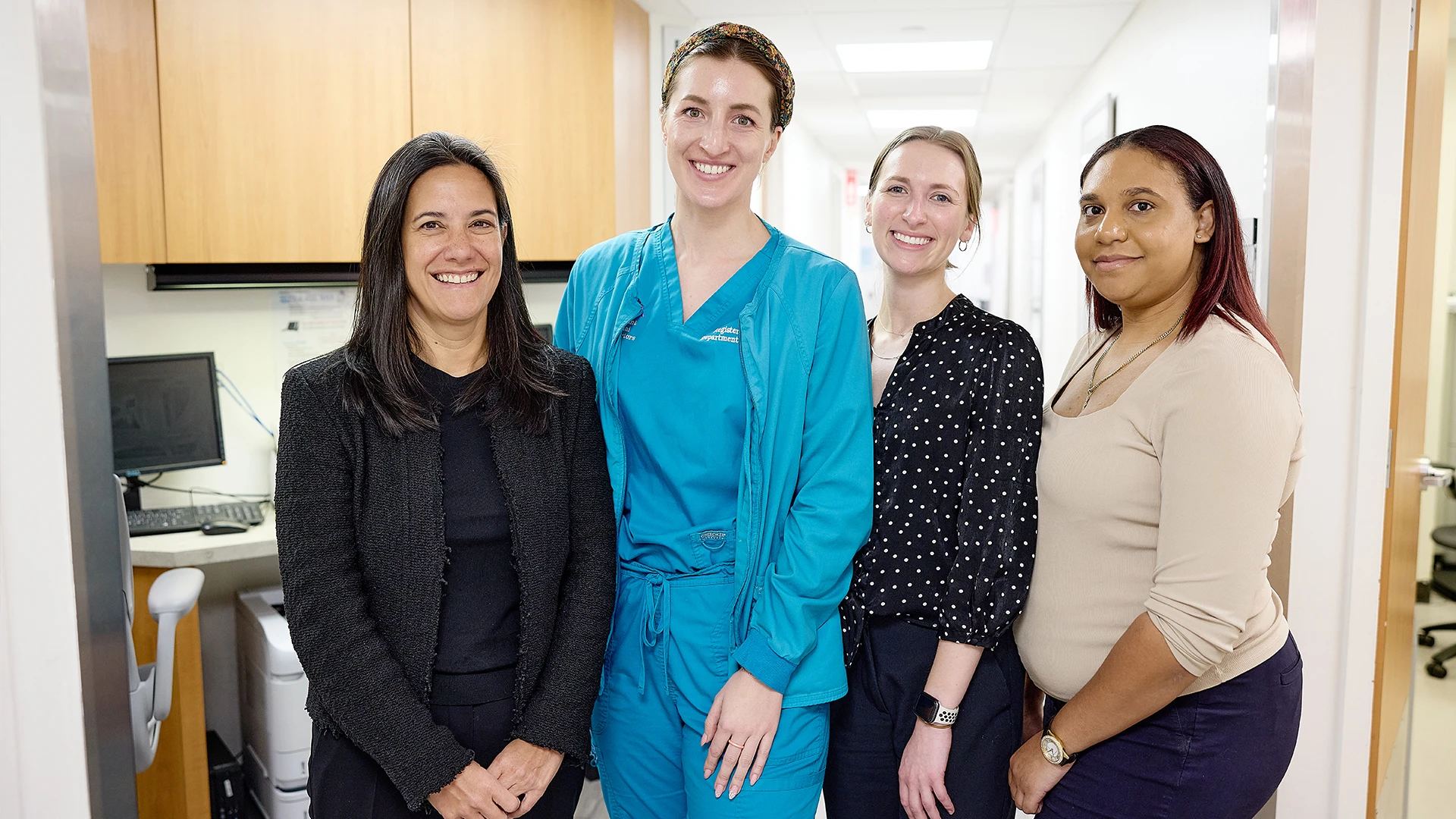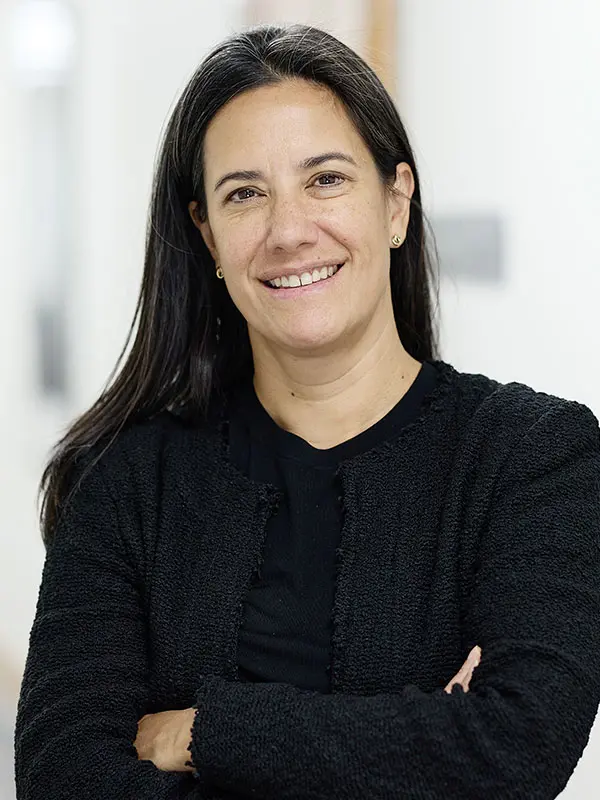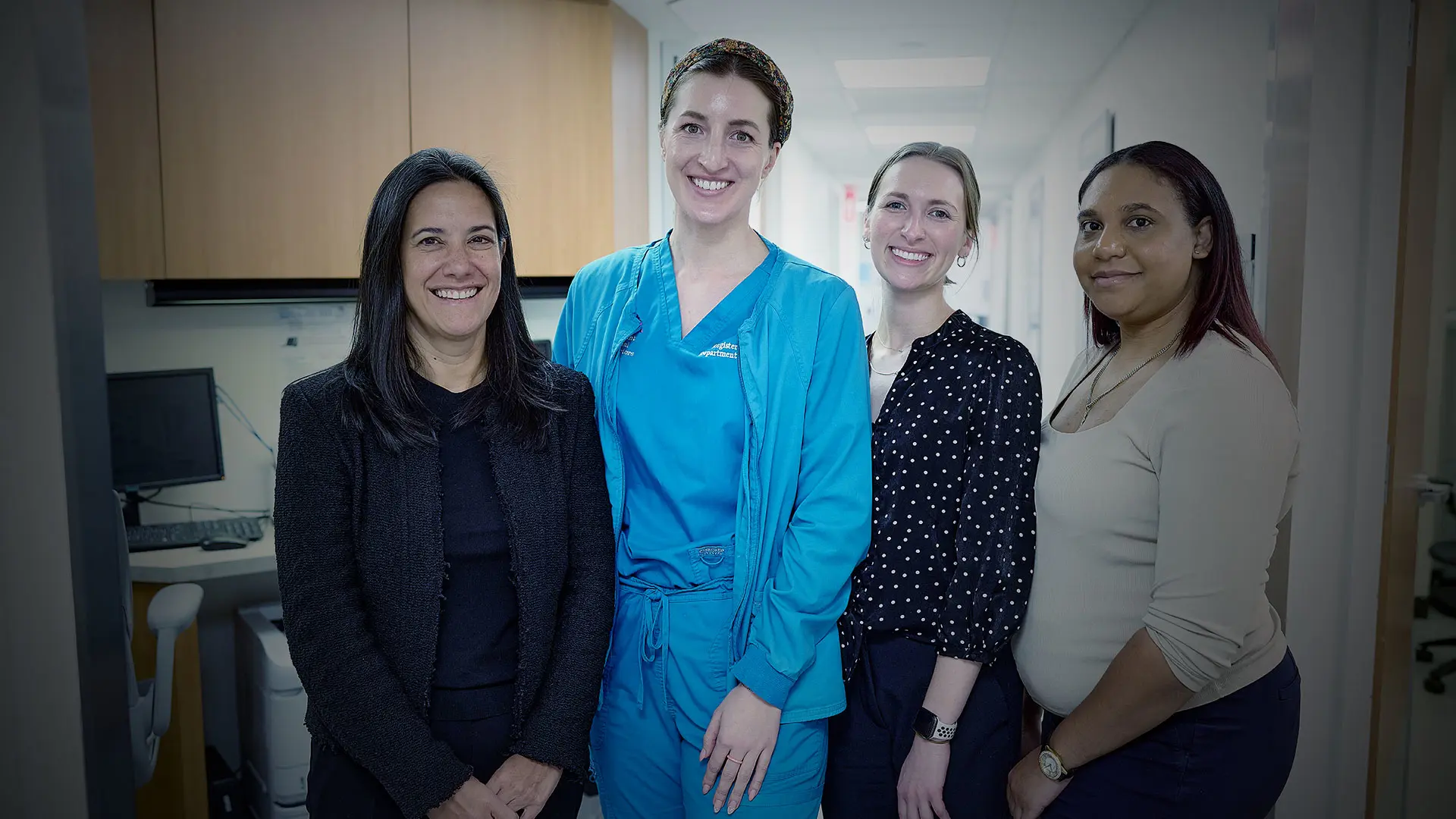As scientific knowledge and public awareness of pancreatic cancer have grown across the country, no institution has worked harder to bring high-risk individuals into the surveillance fold than the Mount Sinai Health System. Based on its groundbreaking studies of recent years, the Pancreatic Cancer Prevention and Surveillance Clinic is providing pancreatic cancer screening to people with variants in the breast cancer susceptibility genes BRCA1 and BRCA2—which also carry a predisposition to pancreatic ductal adenocarcinoma (PDAC).
“In the past, there wasn’t much awareness of BRCA1 and BRCA2 as pancreatic cancer susceptibility genes,” points out Aimee Lee Lucas, MD, MS, Professor of Medicine (Gastroenterology) at the Icahn School of Medicine at Mount Sinai, who created and continues to lead the surveillance program. “But we now know that approximately 10 percent of pancreatic ductal adenocarcinoma is due to a hereditary or genetic predisposition, including variants in the breast and ovarian cancer syndrome genes BRCA1 and BRCA2. This knowledge has paved the way for a comprehensive surveillance program aimed at early detection and risk stratification of individuals who may be at increased risk of pancreatic cancer.”
Pancreatic cancer remains the third leading cause of cancer death in the United States, with a five-year survival rate of around 12 percent. Indeed, the vast majority of people diagnosed with this disease have already reached stage four, where survival is measured in months. A more hopeful sign is that advanced new treatments together with more intense screening have pushed the three-year survival rate as high as 85 percent in some cases.
Dr. Lucas, who is Chief of Gastroenterology, and Hepatology, at Mount Sinai Morningside and Mount Sinai West, and her surveillance team in Manhattan advise individuals with a strong family history of pancreatic cancer, or who are known to have BRCA1, BRCA2, or variants in other pancreatic cancer susceptibility genes, that they may be candidates for screening.
“In a recent study, we imaged and evaluated a large cohort of individuals with multiple breast cancer susceptibility genes—BRCA1 and BRCA2 as well as PALB2 and ATM—and found that about a third had pancreatic abnormalities,” says Dr. Lucas, referring to a study in Clinical Gastroenterology and Hepatology.
She and her team also learned that metabolic changes such as worsening glycemic control and weight loss may be harbingers of underlying pancreatic cancer, as reported in Clinical Gastroenterology and Hepatology. Furthermore, these elevations may occur up to three years before a diagnosis of pancreatic cancer and, in the case of weight loss, up to two years before a diagnosis. Moreover, a recent Mount Sinai study in BMC Gastroenterology also found that high-risk individuals with elevated hemoglobin A1c (HbA1c) were more likely to have pancreatic cysts than patients with lower levels. For these reasons, they have recommended including markers of trends in glucose intolerance and body mass index in predictive models of pancreatic cancer.
For the majority of patients who are screened, these abnormalities and metabolic changes simply require monitoring, which is recommended annually. And with its focus on early detection, Mount Sinai’s Pancreatic Cancer Prevention and Surveillance Clinic is well equipped for this task through a team of clinicians experienced in gastrointestinal oncology who work closely with cancer genetic counselors.

Aimee Lucas, MD, left, leads a surveillance team for people at high risk for pancreatic cancer. The team also includes, from left, Rachel Estime, BSN, RN; Miranda Veeser, DNP, FNP-C; and Karen Vazquez, Endoscopy Scheduling.
Established more than a decade ago, the clinic has expanded its role to include one-stop full genetic and clinical risk assessment. During an initial visit, patients will typically meet with a genetic counselor to thoroughly review their family history before sitting down with Dr. Lucas for further evaluation. This comprehensive review includes a highly detailed three-generation family history in search of not just pancreatic and breast cancer, but other neoplasms such as ovarian, skin, and colon cancers. The program then offers genetic testing after shared decision-making. For those judged to be at increased risk, Dr. Lucas may recommend a personalized clinical surveillance program that could include endoscopic ultrasound or magnetic resonance imaging. Blood may also be drawn for genetic testing and for any research studies the patient is eligible for and elects to join.
Because the clinic is founded on the pillar of proactivity, patients with a pancreatic cancer predisposition may be advised of lifestyle and dietary changes—such as smoking cessation and a diet rich in fruits, vegetables, and unprocessed foods—which research has shown could help modify their risk.
“Our overarching goal is to catch pancreatic cancer at its earliest possible stage or, ideally, prevent it from ever developing,” emphasizes Dr. Lucas. “The steady growth of our clinic is evidence that more and more people understand the clinical risk and how the kind of advanced screening and surveillance tools we offer could potentially save lives.”
Featured

Aimee Lucas, MD, MS
Professor of Medicine (Gastroenterology)
